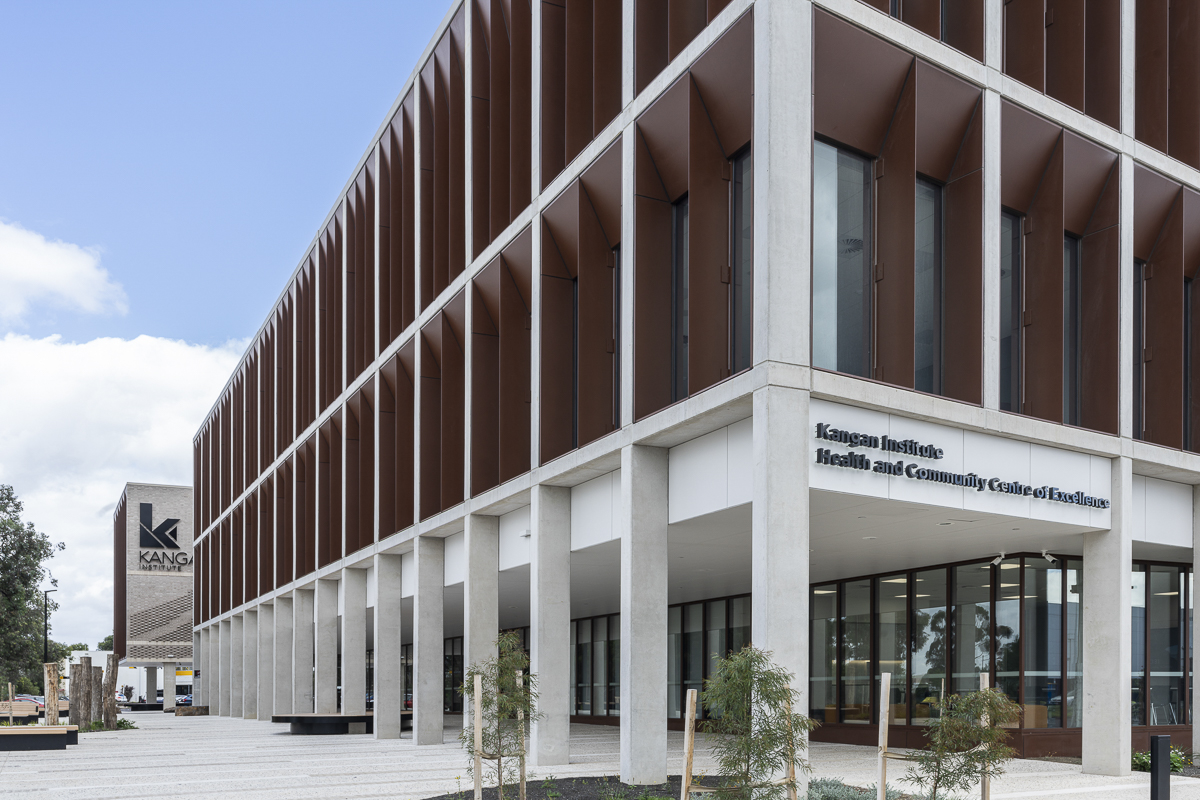Campuses
Kangan Institute Blog
Where does the Certificate II in Plumbing (Pre-apprenticeship) take you?
As a plumber, your skills are highly in demand and your employment prospects are great, whether you work for yourself, as a contractor or for a business or company. The plumbing industry is set to expand in the future with a stronger focus on environmental sustainability, alternative energy technology and water conservation.
The Certificate II in Plumbing (Pre-apprenticeship) (22569VIC) is a course that provides students with hands-on experience, involving both theory and practical skills involved in plumbing to provides students with the skills and knowledge to become successful in this industry. Candidates will gain the skills necessary to enhance their prospects of employment and will also improve their understanding of the nature of plumbing work and conditions in typical workplaces.
Employers are looking for apprentices who are work-ready, adaptable and well organised. Apprentices will be required to apply practical water, mechanical, roofing and gas solutions in domestic and commercial settings in a safe and efficient way.
The Certificate II in Plumbing allows students to progress in numerous different pathways. Some career paths available once completing this certificate are as follows:
Builder’s Labourer
A builder’s labourer job role is to assist various tradespeople on site by completing manual labouring tasks on building and construction sites. The type of work they will be expected to carry out depends entirely on the type of construction site and the tradesperson they will be assisting. Some of the tasks this could include the unloading and carrying materials, or tools and equipment, helping to erect scaffolding, digging trenches, mixing, pouring and spreading concrete, or removing rubble and rubbish. A builder’s labourer will need to be: physically fit, be able to enjoy outdoors and practical work, be able to follow instructions, be able to work as part of a team and also be able to work at a continual pace.
Construction Assistant
A construction assistant, also known as a trades assistant, job role is to assist on building and construction sites by completing a variety of manual labouring jobs. Construction workers may specialise by working with various tradespeople as a trade assistant, in industries such as plastering, bricklaying or carpentry. A construction assistant is required to unload and carry materials and place tools and equipment into position for other workers. Workers will also be required to dig trenches and help erect and dismantle scaffolding, safely use a wheelbarrow to remove rubble and rubbish. Workers may also be required to dismantle small structures in preparation for new construction and if workers have the correct licensing they may also be required to operate construction machinery.
For those students looking to continue their studies in plumbing, consider the Certificate III in Plumbing. This certificate provides trade qualification training and support including these six specialist streams: water, sanitary, drainage, mechanical services, roofing and gas services. Students will have access to comprehensive work experience where they will learn manual skills and working within teams. Once apprentices complete this certificate they will then be eligible to apply to become a registered plumber and seek employment from a range of career paths and jobs across different areas of the plumbing industry:
Plumber:
Plumbers are required to lay out, install, test and maintain pipes, fixtures, metal roofing, fittings, gas meters and regulators. Plumbers will be expected to perform these typical duties:
- Studying blueprints, drawings and specifications to determine the layout of plumbing systems and materials required.
- Setting out and installing hot and cold water systems and associated equipment.
- Installing water-based fire protections systems, including fire hydrants, hose reels and sprinkler systems.
- Designing and installing sanitary plumbing and water supply systems, discharge pipes and sanitary fixtures.
- Fabricating and installing soil and waste stacks.
- Assembling and installing mechanical services plant, air handling and conditioning equipment and small bore heating systems.
- Installing sewerage and effluent pumping equipment and disposal systems.
- Installing below-ground drainage systems and associated ground support systems.
- Installing gas appliances, flues and pressure regulating devices.
- Fabricating and installing metal roofing, rainwater goods and flashings.
The plumbing industry offers a wide range of occupations in various specialities. Here are some of the different types of plumbing work available:
Water plumbing
A water plumber will install, remove, repair and maintain hot and cold water pipes and fittings.
Sanitary plumbing
A sanitary plumber will install, remove, renew, repair and maintain sanitary pipes, including the ventilation of those pipes and the fitting to receive and convey sewage.
Drainage
A drainer will install, repair and maintain pipes in stormwater and sewerage systems and drains. These plumbers may also install septic tanks, holding wells, sullage pits and absorption tanks.
Mechanical services
Work on heating, cooling or ventilation of buildings which may include installation, removal, repair and maintenance of pipes, valves, regulators, tanks, evaporative cooling, ventilation and air conditioning systems.
Roofing
A roofing plumber installs, renews, repairs and maintenance of metal roof water systems such as flashings, gutters, rainwater piping, downpipe and other accessories on residential, industrial and commercial buildings. The work conducted by roofing plumbers includes working outdoors and safely in heights.
Gas services
A gas fitter installs, disconnects, repairs and maintains gas lines, meters, regulators, hot water systems and appliances associated with ventilation equipment involving gases such as fuel, liquefied petroleum, manufactured and natural gases.
Once candidates have completed their certification, students will then be eligible for a full time position in any of these career paths and be able to work within the plumbing industry work within companies both commercial and residential in need of your newly developed plumbing skills.
You may also be interested in

18/03/2025
Advance your career in early childhood

28/02/2025
The Importance of Data Management

21/02/2025
